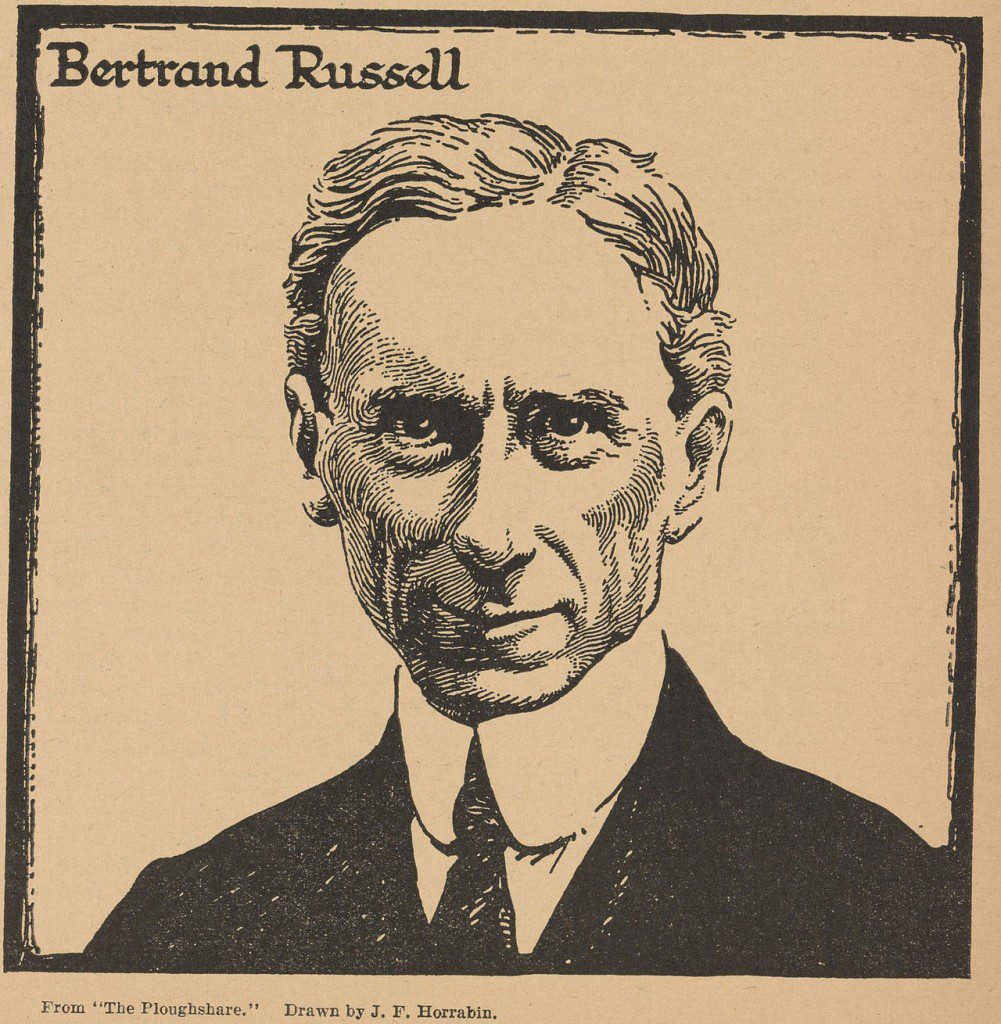
(Wikimedia Commons public domain image)
I published this column back in the late 1990s, in the Provo Daily Herald:
In a world filled with violence, poverty, suffering, illness, accidental death, disappointment, frustration, and hatred, pessimism is an ever-beckoning possibility. And, for some, pessimism shades eventually into utter despair, hopelessness, and cynicism.
In the long term, the secular or naturalistic worldview actually has little else to offer. As one American philosopher put it, the things that matter most will ultimately be at the mercy of the things that matter least. The British philosopher-mathematician Bertrand Russell, an outspoken atheist, expressed the situation even more strikingly in an essay rather archly entitled “A Free Man’s Worship”:
“That man is the product of causes which had no prevision of the end they were achieving; that his origin, his growth, his hopes and fears, his loves and his beliefs, are but the outcome of accident collocations of atoms; that no fire, no heroism, no intensity of thought and feeling, can preserve an individual life beyond the grave; that all the labors of the ages, all the devotion, all the inspiration, all the noonday brightness of human genius, are destined to extinction in the vast death of the solar system, and that the whole temple of man’s achievement must inevitably be buried beneath the debris of a universe in ruins—all these things, if not quite beyond dispute, are yet so nearly certain that no philosophy which rejects them can hope to stand. Only within the scaffolding of these truths, only on the firm foundation of unyielding despair, can the soul’s habitation henceforth be safely built.”
But is such a view really safe? Is it even remotely satisfying, when honestly confronted? Russell’s own Autobiography suggests that the rather defiant public face of humanistic optimism that he consistently wore masked frequent bouts of inner misery.
Strikingly, Russell’s own daughter Katharine, while a graduate student with her husband at Harvard, rejected the fierce atheism in which she had been raised. It had, she said, brought her only unhappiness and dissatisfaction. Ironically, when her husband subsequently entered divinity school, some of the money from Russell’s Nobel prize for literature went to paying his tuition. Katharine impishly commented to her father that God probably found that fact rather funny; Russell responded that, while he didn’t know about God, officials at the Bank of England had been highly amused.
While they differ in much, the great religions of the world are united in declaring that there are great and good things in store for the faithful, and even, in some versions, for all or virtually all of humankind. The contemporary British philosopher John Hick terms this view, shared by Buddhism, Hinduism, Islam, Christianity, Judaism, and all of the major traditions, “cosmic optimism.” “Eye hath not seen, nor ear heard, neither have entered into the heart of man, the things which God hath prepared for them that love him.” These words come from the King James version of 1 Corinthians 2:9, a Christian text from the New Testament. But they are unmistakably based upon Isaiah 64:4, a passage from the Old Testament or Hebrew Bible. And, in Islam, they eventually turn up as a “hadith” or tradition ascribed to the Prophet Muhammad.
The Hebrew Bible opens with the book of Genesis, in which we are told, leaving aside debatable details, that the physical world in which we live is not the product of random chance but of the deliberate action of a supremely powerful and intelligent being who benevolently looked upon his creation and pronounced it “good.” And the Christian Bible closes with the Revelation of John which, again leaving aside arguments over the details of interpretation, testifies that, however bad things may become, however great the uncertainties and the sufferings, all remains under the control of a vastly powerful and infinitely good Father. In the end, all will conclude in a vision of blessed happiness, symbolized by a celestial city that needs no illumination because God himself is its light. “And God shall wipe away all tears from their eyes; and there shall be no more death, neither sorrow, nor crying, neither shall there be any more pain: for the former things are done away” (Revelation 21:4).
The principal message of religion, said the American philosopher William James, is that “the best things are the more eternal things, the overlapping things, the things in the universe that throw the last stone, so to speak, and say the final word.” Or, in the memorable words of the fourteenth century English mystic and anchorite Julian of Norwich, that “All shall be well and all shall be well and all manner of things shall be well.”
It is a message, and a confidence, that is much needed in our time












